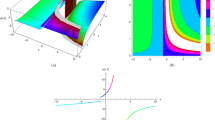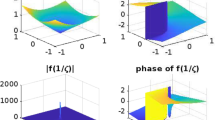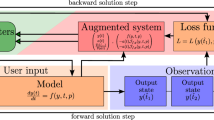Abstract
I AM glad to think that a pure mathematician sees the difficulty met with by users of mathematics. I wish that men who write to me privately would publish their remarks. One correspondent says: “I think the mathematicians made a rather stupid blunder when they introduced for partial differentiation. This way: nearly all differential coefficients are partial; even a complete one (assumed complete) may become partial by extension of the field of operation. So an old investigation of Kelvin's, for example, using d throughout, is, by the mathematicians, replaced by the same using throughout, except one or two here and there! What is the use? It gives a lot of trouble, and as printers haven't always 's, or proper sized 's, it makes bad work. It should have been itself that was introduced for the exceptional use, thus making next to no alteration in the classical investigations.” These are, indeed, my own views, but as my pupils go forward to University examinations I advise them to adopt the fashion which is likely to please the examiners.
This is a preview of subscription content, access via your institution
Access options
Subscribe to this journal
Receive 51 print issues and online access
$199.00 per year
only $3.90 per issue
Buy this article
- Purchase on Springer Link
- Instant access to full article PDF
Prices may be subject to local taxes which are calculated during checkout
Similar content being viewed by others
Rights and permissions
About this article
Cite this article
PERRY, J. Symbol for Partial Differentiation. Nature 66, 271–272 (1902). https://doi.org/10.1038/066271d0
Issue Date:
DOI: https://doi.org/10.1038/066271d0
Comments
By submitting a comment you agree to abide by our Terms and Community Guidelines. If you find something abusive or that does not comply with our terms or guidelines please flag it as inappropriate.



